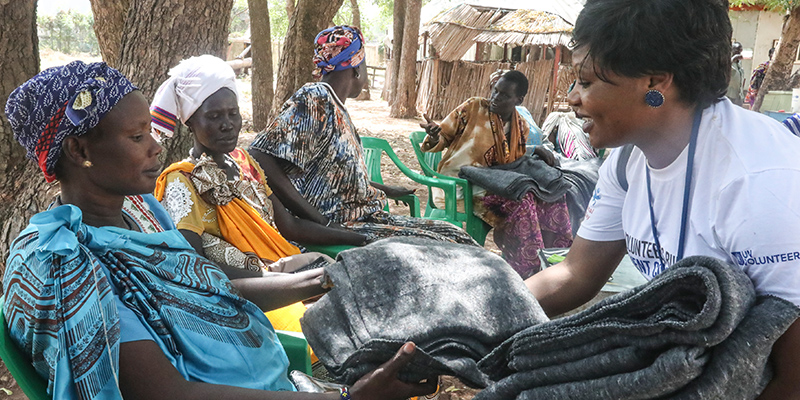Making the Difference in Peacebuilding, Security and Development - RBM and Beyond 2021 - A Virtual Learning Journey
Policymakers and practitioners in the field of peacebuilding, security and development still lack critical skills in results-based management (RBM) and monitoring, evaluation and learning (MEL). This course, now in its 11th year, provides skills development in results-based approaches and theories of change, implementation of monitoring and evaluation considering gender responsiveness and implications for Agenda 2030.
Learning objectives
The overall learning goals for the course are:
- design a project or programme using RBM and theories of change
- plan and implement monitoring, evaluation, accountability and learning frameworks and activities
- plan and implement an evaluation based on an evaluation matrix
- manage a project or an annual review based on results and impact
- resolve problems of demonstrating results, especially for gender-related issues
- understand and work in complex environments
Modules
The course consists of instruction in essential tools and techniques, current lessons from the field, guidance from experts, and hands-on practice developing skills for peace, security and development programmes. About 40% of the course time is spent in a small group setting working on relevant problems.
Course modules include:
- RBM, results and impacts
- Theories of change
- Evaluation questions and design
- Indicators and data gathering
- Theories of change for the complex domain
Schedule
To make the best use of the time during the 5-day virtual live sessions, in Phase 1 of the learning journey all participants are required to complete an online preparatory course to ensure a common baseline. The preparatory course takes 8 hours. The live course further emphasizes complex environments with outcome mapping, outcome harvesting, and the Cynefin framework included. The learning focuses on practical work in small groups, based on case studies.
Registration requirements
All applicants must include a 200 word (max) summary of a problem relevant to the course - the work in small groups will be based on actual issues submitted. The problem should fall within the following categories:
- Challenge of thinking through a coherent approach, planning for results, defining (and updating) theories of change, understanding the context and identifying assumptions, investing time in defining and collecting baseline data (challenges of planning before work starts).
- Challenge of setting-up and using a MEL system, collecting the data for indicators, costs of the collection of data in difficult environments, using the information from the MEL system, especially ensuring that the “learning” is effectively used by decision-makers (challenges of MEL).
- Challenge of monitoring and evaluating outcomes and impact, and learning from these results; going beyond measuring what is done to identifying the difference that is achieved, using evidence-based results (challenges about making a difference with RBM).
- Challenge of applying RBM and MEL tools in peacebuilding, conflict prevention, and securitysector reform (challenges of the complex domain).
This course is designed to build the skills of practitioners who already work in results-based management, monitoring, evaluation, accountability and learning, or complexity, in the fields of peacebuilding, security and development:
- National development, peace and security officials, representatives from local and international development, political and security agencies
- Technical advisors/programme officers from UN and other relevant agencies
- Key policymakers from violence-affected countries
- Officials from security and development agencies from donor countries
- Independent experts and specialists in the peace sector
The needs of individuals from both public and non-governmental institutions will be addressed.
The course will be held in English; no translation will be provided.
The course costs are covered by the Government of Switzerland. Participants will be selected from the application pool on a competitive basis.
Participants must provide their own computer or tablet, and web-cam, and have access to an internet connection capable of continuous video conferencing.
Participants are expected to give 100% attention to the course during the hours it runs. Timesharing participation in the course with day-to-day work is negative both for the individual concerned and for other members of the learning group. Full participation in all sessions is required for a course certificate.
Registration is closed








